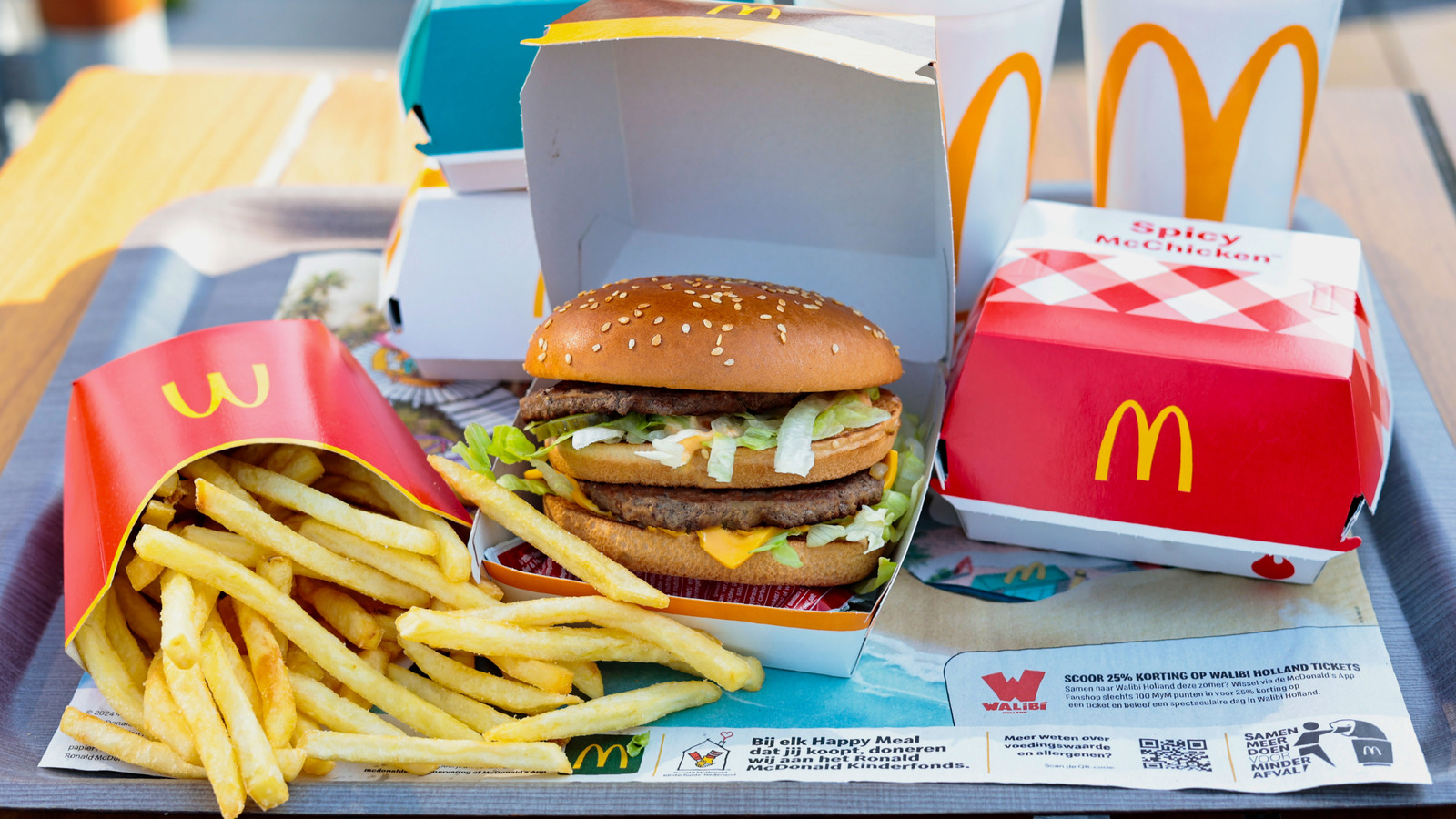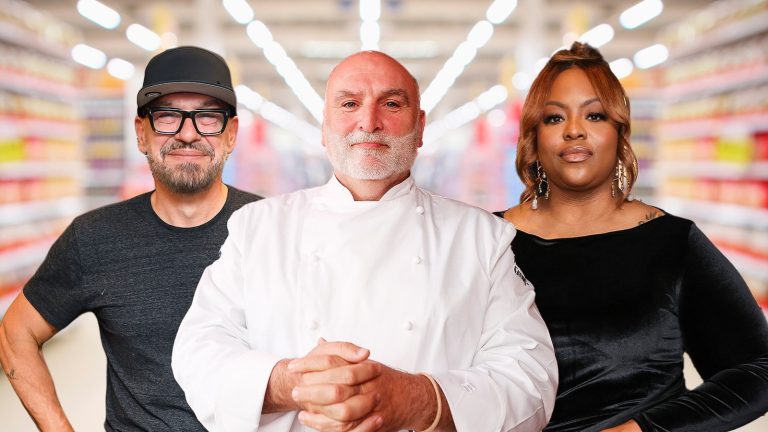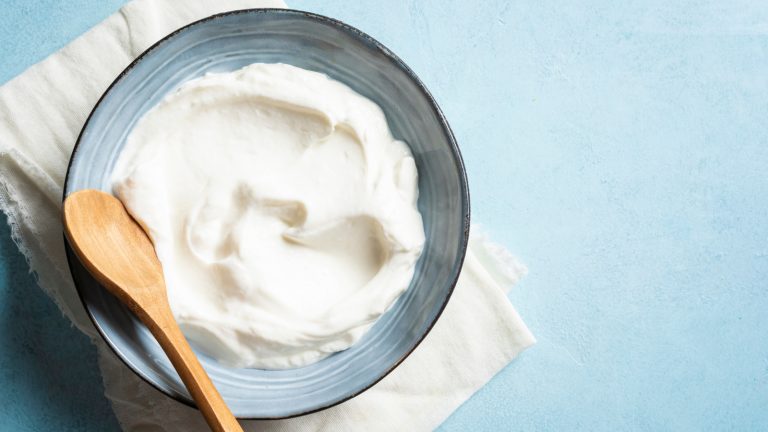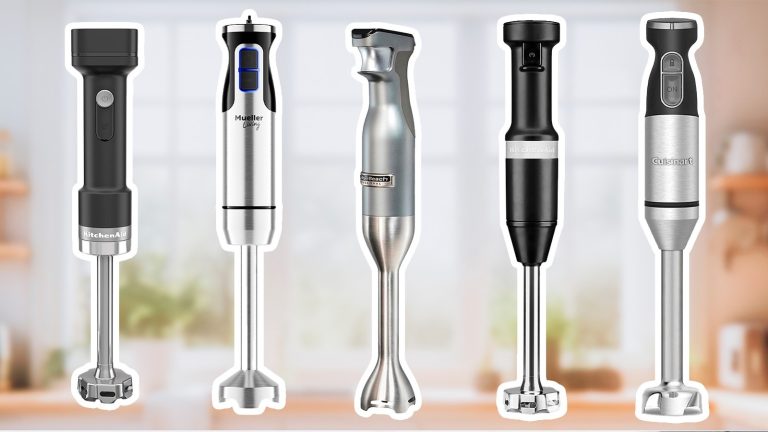McDonald’s is one of the biggest names in fast food. It operates over 38,000 locations across the world. It’s a fixture in cities, suburbs, and rural communities alike, and it seems like there’s no place that the Golden Arches have not touched. With a presence that large — and over 80 years in operation — it’s no surprise that McDonald’s has faced its fair share of legal battles.
Indeed, the fast food giant has been the subject of many lawsuits from customers and has also filed several suits against other corporations since its founding. Some cases are well-known, including the “hot coffee incident,” while others have emerged more recently due to ongoing concerns over price-gouging, deceptive marketing, and food safety. In an effort to shed light on some of McDonald’s most notable and relevant legal battles over the years, we assembled the list of the lawsuits, court cases, and proceedings you need to know about.
The infamous hot coffee case
Liebeck v. McDonald’s is perhaps one of the most well-known legal cases involving the fast food behemoth. This incident set a precedent for how McDonald’s would go about labeling its products and also highlighted the chain’s track record for putting profits before customer safety — which is arguably one of the worst mistakes McDonald’s has ever made.
In 1992, Stella Liebeck suffered third-degree burns after a McDonald’s coffee spilled in her lap. The burns were extensive — covering 16% of her body — and took upwards of two years to heal. Liebeck tried to settle with the company for $20,000, which would cover her medical expenses, but McDonald’s offered a mere $800. When Liebeck took McDonald’s to court, it was revealed that the chain’s coffee wasn’t just hot — it was 30 to 40 degrees hotter than coffees served at other restaurants. The legal team also noted that 700 individuals had experienced similar burns from McDonald’s coffee, yet the chain required franchises to continue to serve the beverages at between 180 degrees and 190 degrees Fahrenheit. It was thought that the reason for this was that if McDonald’s served its coffee as hot as possible, it would not need to give customers as many refills of it, thus saving the company money.
The court eventually awarded Liebeck compensation for compensatory and punitive damages — to the tune of $2.7 million, which was eventually reduced. Now, McDonald’s coffee cups display a warning to customers noting that the contents are hot. It also prompted the chain to issue training to its employees on how to properly attach lids and serve beverages at a “drinkable” temperature.
The fight over McDonaldland
Children who grew up in the ’70s and ’80s may have fond memories of McDonald’s television ads, complete with characters like the Hamburglar, Grimace, and Officer Big Mac. But, before there were these characters, which were as integral to McDonald’s as its food, there was “H.R. Pufnstuf” — a one-season show that appeared in 1969, a year prior to McDonald’s character-filled ad campaign. “H.R. Pufnstuf” shared some commonalities with McDonaldland — and it was easy to draw parallels between McDonald’s Mayor McCheese and the large-headed dragon character in the show.
The creators of “H.R. Pufnstuf” eventually ended up suing McDonald’s for stealing the character and adapting it for its own ads. It was eventually revealed that the advertising company McDonald’s used approached the creators of the show about a potential collaboration, but backed out at the last second — only to allegedly lift the ideas for themselves.
McDonald’s was forced to pay $50,000 in damages, but both sides appealed the verdict, which eventually led to the courts yet again siding with “H.R. Pufnstuf” — and ultimately increasing the damages to upwards of $1 million. The fast food giant also had to revise its character lineup for the ads to prevent further infringement.
McSleep Inns no longer
McDonald’s seems to have capitalized on all things “Mc” — from the Egg McMuffin to the McNugget. And, one 1988 ruling proved that McDonald’s truly did have a foothold on all things “Mc.” A federal district judge ruled that Quality Inns International Inc., a large hotel chain, would need to cease using “McSleep Inns,” the name of its new chain of economy-level hotels.
McDonald’s issued warnings to the company prior to the ruling, though the hotel chain clapped back by filing a lawsuit, claiming that the name did not technically infringe on McDonald’s trademark. McDonald’s countersued under the premise that using “Mc” in the name of the hotel would cause consumers to falsely associate it with the fast food chain. The judge eventually sided with McDonald’s, granting a permanent injunction against the use of the name and gave Quality Inns International a 30-day window to fall in line. The chain was eventually renamed “Sleep Inns.”
This is not the only instance of McDonald’s taking legal action over its ownership of the “Mc” name. In 2019, following a complaint filed by an Irish fast food chain called Supermac’s, the European Union Intellectual Property Office (EUIPO) ruled that McDonald’s “had not proved genuine use of the ‘Mc’ prefix on some of the products it trademarked,” according to a BBC article. However, McDonald’s was given the right to ownership of “Mc” branding for several items, including some sandwiches and chicken nuggets.
Advertising to children
McDonald’s wouldn’t be the first company facing allegations of marketing towards children, but its actions did result in a legal firestorm in 2018, when a Canadian man sued the chain for allegedly violating a provincial law that prohibits marketing towards children under 13. Quebec is one of the few places in the world where such marketing is illegal, and the law only offers a few exceptions — restaurants not being one of them. The father, who reportedly visited McDonald’s every couple weeks with his three children, argued that the Happy Meal’s toy tie-ins to pop culture, like film releases, and display of toys at a child’s eye-level were evidence of the chain’s alleged wrongdoing.
This was not the first time that McDonald’s had come under fire for similar issues. In 2010, a California mother, in partnership with the Center for Science in the Public Interest, alleged that the company’s decision to pack its Happy Meals with toys is deceptive towards children. The suit argued that the use of these toys to market to children was not only unethical, but it also encouraged unhealthy eating. Much like the Canadian class action lawsuit, the California mother reported that her two children constantly requested visits to McDonald’s in order to complete the set of toys hidden in the Happy Meal boxes. The California suit came after two counties in the state, Marin and San Francisco, passed laws that prohibited the inclusion of toys in children’s meals that did not reach certain nutritional benchmarks.
McDonald’s versus Big Beef
Although it may seem like McDonald’s is constantly being sued by individuals, the company has taken its fair share of legal action against other entities. In 2024, McDonald’s filed a federal lawsuit against the “Big Four,” beef companies – Cargill, JBS, Tyson Foods, and National Beef — over allegations of price-fixing.
McDonald’s alleged that the beef producers — which controlled about 80% of the U.S. beef market in 2018 – had been intentionally reducing the amount of beef produced in order to charge more for it, like by closing several of their large processing facilities. The fast food giant argued that the deliberate actions to control the price of beef were in violation of the Sherman Antitrust Act. The complaint also alleged that the “Big Four” colluded at conferences and trade shows and shared business information with each other that would increase their profits — at the expense of companies like McDonald’s.
McDonald’s is one of the largest purchasers of beef in the world, though the amount of money that the company sought in damages against the meat packers was not specified. Similar cases have been brought against the “Big Four” by other plaintiffs besides McDonald’s, including Aldi, Sodexo, and Target.
Halal food lawsuit
Eating at McDonald’s became more difficult for halal eaters — a dietary requirement that requires animals to be slaughtered in accordance with Islamic law and prohibits the consumption of pork — in 2013. Two years prior, a customer sued the fast food chain, alleging that the chicken sandwich he had purchased had been falsely advertised as halal. The lawsuit detailed that although the Dearborn, Michigan franchise advertised and purchased halal McNuggets and chicken sandwiches, it started selling non-halal chicken once it had run out of halal-compliant meat — on multiple occasions. As a result of the $700,000 settlement and lawsuit, the last two McDonald’s franchises to serve halal options — both located in Michigan — removed halal products from their menus in 2013.
While this was the first case brought against McDonald’s concerning halal food, it was not the first one brought against McDonald’s with labeling-related concerns. In 2002, McDonald’s paid a $10 million settlement to Sikh, Hindu, and vegetarian groups after mislabeling its french fries as vegetarian when the fry oil actually contains added beef flavor. The confusion emerged after the chain announced it would be switching from frying with beef tallow to vegetable oil in the ’90s.
Magee v. McDonald’s
McDonald’s was hit with a somewhat unique discrimination lawsuit in 2016 after plaintiff Scott Magee alleged that the chain violated the Americans with Disabilities Act (ADA). Magee, who is blind, claimed he attempted to order food from a Louisiana McDonald’s in 2015, but was ultimately denied service after the lobby had closed. This would mean he would have had to use the drive-thru, and, at the time, the chain prohibited pedestrians from ordering via the lane. The suit alleged that the company did not offer the accessibility needed to serve visually-impaired customers after its lobbies had closed.
The federal judge ultimately sided with McDonald’s, ruling that the disability itself was not the reason why Magee couldn’t use the drive-thru, therefore McDonald’s was not in violation of the ADA. Moreover, the judge believed that McDonald’s corporate couldn’t technically be held responsible, since the three franchises that Magee said were in violation of the ADA operated via corporate franchise agreements. These agreements allow the independent operators to decide how they want to handle late-night business, in compliance with federal laws.
The aftermath of the E. coli outbreak
2024 was arguably not a good year for food safety, as evidenced by the infamous McDonald’s E. coli outbreak. The October 2024 outbreak was linked to McDonald’s Quarter Pounders, specifically the onions added on top of them. By the end of the outbreak, 104 cases of E. coli contamination were reported, with one death and 34 hospitalizations across 14 states. McDonald’s and other fast food chains pulled onions from stores following news of the outbreak, but it did not stop the legal firestorm that ensued.
A resulting $5 million class action lawsuit was filed on behalf of two plaintiffs who fell ill after eating contaminated sandwiches. This lawsuit was the third of its kind filed following the E. coli outbreak; Two people in Nebraska and Colorado also filed lawsuits against McDonald’s. The $5 million class action suit, more specifically, alleged that McDonald’s engaged in “fraudulent, unfair, deceptive, misleading, and/or unlawful conduct stemming from its omissions surrounding the risk of E. coli contamination affecting the Products,” as reported by NBC News.
One hot McNugget
You would think that McDonald’s would have learned its lesson about hot food by now. But the chain faced yet another legal run-in in 2019 when a 4-year-old girl suffered second-degree burns by “unreasonably and dangerously” hot chicken McNuggets inside of her Happy Meal, as reported by NBC6.
The girl’s family sued both the Florida franchise and McDonald’s corporate for the incident and requested upwards of $15 million in damages. Both McDonald’s and Upchurch Foods Inc., the franchisee, argued that they were not responsible. But, the jury found both parties failed to put ample warning on the packaging to indicate risk. That said, McDonald’s was not found negligent in this case, but the jury awarded the family $800,000 in damages.
HACER scholarship controversey
The HACER scholarship program, launched by McDonald’s in 1985, has given more than $33 million to Latinx and Hispanic students since its inception. However, it faced legal challenges in 2025 after the American Alliance for Equal Rights sued the company, alleging that the HACER scholarship violates Title VI of the Civil Rights Act of 1964 (which “prohibits discrimination on the basis of race, color, or national origin in programs and activities receiving Federal financial assistance”). The plaintiffs also argued that the program violates Section 1981 of the Civil Rights Act of 1866, which prohibits discrimination on the basis of race and ethnicity when forming contracts. The “contract” implied is the privacy policy that applicants sign when they fill out the HACER scholarship application.
In a statement issued by McDonald’s in January 2025, the company said that it plans to “safeguard HACER” going forward. It also announced it would be dropping the criteria for one parent of the applicant to be of Hispanic or Latino origin and would instead require applicants to share their impact and contributions to the Latinx and Hispanic community in the application. Although it settled the lawsuit, McDonald’s stated that it “[disagrees] with this claim” and plans to evolve its program going forward so it can continue to meet the needs of scholarship recipients.
Broken ice cream machines
McDonald’s broken ice cream machines have become a running joke, but customers may not have to wait much longer for their local franchise to get its machines up and running again. In October 2025, the U.S. Copyright Office gave the fast food chain the opportunity to work around digital locks on its ice cream machine, which previously meant that only the original manufacturer could fix them. The Taylor Company — which has been supplying the machines to McDonald’s franchises for over 70 years — held a copyright on its machines under the 1998 Digital Millennium Copyright Act (DMCA), which essentially prevents tampering or the circumventing of control access on copyrighted technologies, including those pesky McFlurry machines.
The case also established an exemption to the act for retail-scale commercial food businesses going forward. However, there are still barriers to companies bypassing this technology. For one, it’s illegal to sell digital lockpicks that would allow others to repair the machines independently.
Doggy diapers and coffee filters
The COVID-19 pandemic changed a lot of the ways that food service outlets operate, and one decision at an Oakland McDonald’s sparked new controversy for the fast food chain. Workers at one franchise filed a public nuisance lawsuit in spring 2020 after they were told by their managers to wear doggy diapers and coffee filters as masks. The chain also allegedly did not comply with social distancing requirements, and managers did not perform proper temperature checks on employees before they started work. A total of 25 workers and their family members contracted COVID-19, and the managers’ actions led to a 33-day strike — one of the longest in McDonald’s history.
As part of the settlement, the Oakland franchise was required to follow worker safety guidelines and establish a worker safety committee. McDonald’s corporate was not a defendant in the case and, in a statement issued to SF Gate, said that the conduct that occurred at the Oakland franchise was not reflective of pandemic-era procedures required at other locations.
OJ upcharge
No breakfast at McDonald’s is complete without orange juice — but you may not know you’re paying extra for it. That’s the claim in a class action lawsuit filed against the fast food giant in 2023 in California. The plaintiffs argued that McDonald’s did not adequately disclose the orange juice up-charge on its breakfast menus.
The lawsuit suggested that McDonald’s uses deceptive advertising on its menu boards by suggesting the OJ is included, without any asterisk or notation to indicate the charge. The plaintiffs on the case claimed that they only found out about the charge after they had purchased their meal, and one plaintiff claimed she would not have ordered the beverage if she’d known about the additional charge. The lawsuit also allegeed that employees were not trained to inform patrons about the charge before they ordered their meal.
Chemicals in coffee
Your morning cup of coffee is supposed to be the pick-me-up that helps you get through your day. But for one customer, it turned into nothing short of a nightmare. A woman who visited a Dothan, Alabama McDonald’s in 2020 alleged that her caramel macchiato was tainted with chemicals that workers were using to clean the machine. She reported that her mouth went numb when she sipped the coffee, which she claims caused permanent scarring in her throat and may require corrective surgery. The woman said that she asked for help, but that the drive-thru employees slammed the window in her face and would not disclose what chemicals they had used to clean the machine — nor did they call for emergency assistance.
The woman sued McDonald’s corporate, the Alabama branch of the chain, and the owner-operators of the Dothan franchise for a whopping $13 million total in damages. The case was eventually dismissed by a judge following mediation and a motion to dismiss from both sides.





